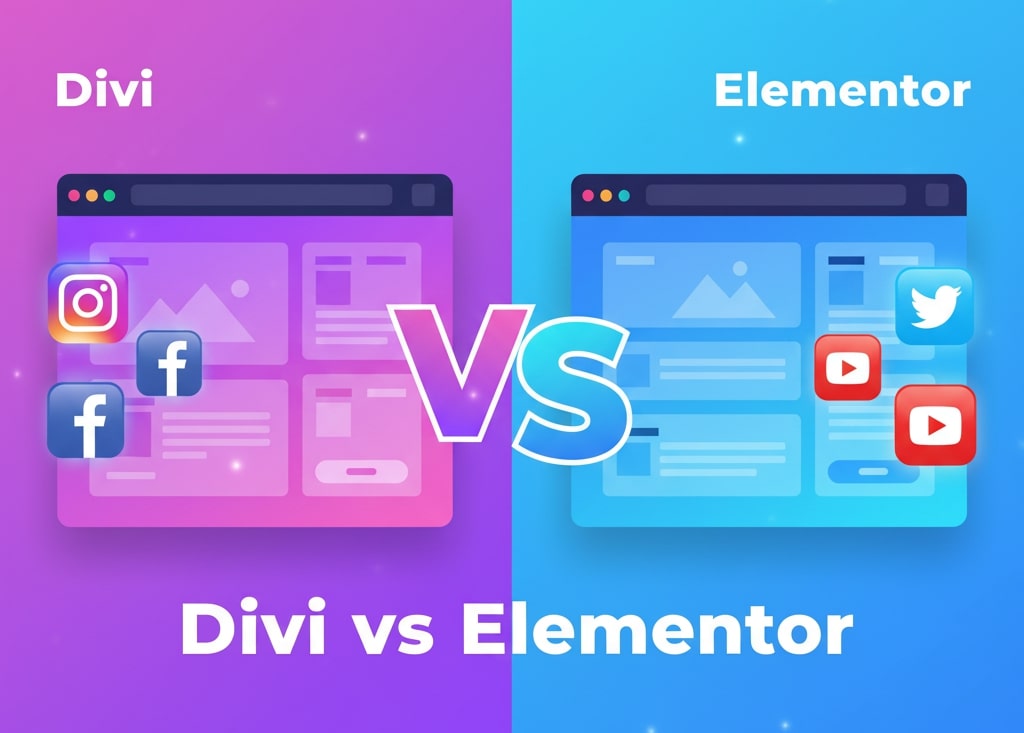When it comes to building WordPress websites, Divi and Elementor are two of the most popular page builders. Both offer powerful drag-and-drop interfaces, extensive design options, and a wide range of integrations. But if your website relies heavily on social media plugins, choosing the right page builder can make a big difference in performance, flexibility, and user experience.
Divi and Social Media Plugins
Divi, developed by Elegant Themes, is known for its intuitive visual builder and modular design approach. It works seamlessly with many social media plugins, allowing you to display feeds from Instagram, Facebook, Twitter, and YouTube directly on your pages. Divi also supports custom layouts, so you can place social media widgets anywhere on your site without breaking your design.
Elementor and Social Media Plugins
Elementor is another widely used page builder with a strong focus on speed and flexibility. It provides extensive widget options for social media, often integrated directly with plugins or available as third-party add-ons. Elementor’s free and pro versions both support social feeds, sharing buttons, and social profile links. Additionally, Elementor’s responsive design options make it easy to ensure your social media content looks great on all devices.
Performance Comparison
While both builders are compatible with social media plugins, performance can vary. Divi’s all-in-one builder and caching features often help maintain faster page loads, especially when using multiple social media feeds. Elementor, on the other hand, offers more lightweight options and selective widget loading, which can improve speed but may require careful plugin management.
Ease of Integration
Divi’s global modules and library make integrating social media plugins straightforward. Once a module is configured, it can be reused across multiple pages. Elementor allows similar functionality through its templates and widget system, giving users flexibility but sometimes requiring additional setup for advanced social media feeds.
Conclusion
If your focus is heavy social media integration with minimal configuration, Divi may offer a more cohesive experience thanks to its modular system and built-in features. If you prefer lightweight, customizable layouts with detailed control over each social element, Elementor is a strong contender. Ultimately, both builders can work effectively with social media plugins, and your choice depends on your specific workflow, design preferences, and performance priorities.
Ready to showcase your social media content effortlessly? Choose the page builder that best aligns with your website’s goals and start integrating your favorite social feeds today!
